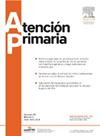Aspectos éticos y legales de la violencia sobre la mujer
IF 1.8
4区 医学
Q2 MEDICINE, GENERAL & INTERNAL
引用次数: 0
Abstract
Caring for female victims of violence presents health professionals with situations that require careful consideration due to the conflicts raised between the fundamental principles of bioethics. During this process, intermediate courses of action should be adopted in which none of the affected principles is totally compromised, yet always take into account due compliance with legal and deontological regulations.
Within these conflicts, the possible impact on the autonomy of the victim must be taken into consideration, conditioned by the relationship of dominance with respect to their aggressor, a fundamental characteristic of gender violence. However, the fact that there is a legal obligation to issue an injury report or to communicate a well-founded suspicion of abuse is not enough to ignore the fact that the person, in this case the victim, must be a participant in the process. As such, the doctor has the obligation to inform his or her patient about this legal requirement, dedicating all the time and attention necessary to ensure that the victim understands the purpose and benefits of complying with this.
In any case, and beyond the appropriate adaptation of the professional's conduct to current precepts, the ethical principle of care must be adhered to, by which the best thing the professional can do is to provide the victim with the means to avoid the repetition of new attacks, implementing prevention measures that have their origin in the accurate diagnosis of the situation of violence and in the communication of this to the authorities.
[暴力侵害妇女行为的伦理与法律问题]。
由于生命伦理学基本原则之间的冲突,医护人员在照顾女性暴力受害者时需要慎重考 虑。在这一过程中,应采取中间行动方案,既不能完全损害任何受影响的原则,又要始终考虑到适当遵守法律和道义上的规定。在这些冲突中,必须考虑到对受害者自主权可能造成的影响,这种影响取决于受害者与施暴者之间的支配关系,这也是性别暴力的一个基本特征。然而,尽管法律规定了发布伤害报告或通报有充分理由怀疑的虐待行为的义务,但这并不足以忽视一个事实,即当事人(此处指受害人)必须是这一过程的参与者。因此,医生有义务将这一法律要求告知其病人,并投入一切必要的时间和精力,确保受害人理解遵守这一要求的目的和好处。在任何情况下,除了使专业人员的行为符合当前的规定之外,还必须遵守关爱的道德原则,根据这一原则,专业人员所能做的最好的事情就是向受害者提供避免再次发生新的攻击的手段,实施预防措施,这些措施源于对暴力情况的准确诊断以及向当局通报这一情况。
本文章由计算机程序翻译,如有差异,请以英文原文为准。
求助全文
约1分钟内获得全文
求助全文
来源期刊

Atencion Primaria
医学-医学:内科
CiteScore
2.90
自引率
8.00%
发文量
156
审稿时长
33 days
期刊介绍:
Atención Primaria es una revista que publica trabajos de investigación relativos al ámbito de la atención primaria de salud. Desde el punto de vista conceptual, Atención Primaria asume el nuevo modelo de atención primaria de salud, orientado no sólo a la curación de la enfermedad, sino también a su prevención y a la promoción de la salud, tanto en el plano individual como en el de la familia y la comunidad. En estos nuevos aspectos que definen el modelo de atención primaria de salud es en los que se centran los trabajos de investigación que publica Atención Primaria, la primera revista de originales española creada para recoger y difundir la producción científica realizada desde los centros de atención primaria de salud sobre cuestiones como protocolización de la asistencia, programas de prevención, seguimiento y control de pacientes crónicos, organización y gestión de la asistencia primaria, entre otros.
 求助内容:
求助内容: 应助结果提醒方式:
应助结果提醒方式:


